'Good Boy' And 'Black Cat' Artist Releases A New Comic Addressing The Effects Of Plastic Waste On Seabirds
Talented illustrator, Jenny-Jinya has found success with her informative and sad stories about suffering animals. You may have seen her 'Good Boy' comic, or her popular 'Black Cat' story, which was published to bring awareness to the neglect and abuse of cats.
Jenny says that she makes these comics to help give a voice to the innocent animals who have become victims as a result of the actions of humans.
In her latest series, Jenny addresses the effects of human-made plastic pollution on wild animals, in particular, seabirds.
Scroll down to take a look at the informative and heartbreaking series of images by Jenny-Jinya.
Studies have shown that plastic floating in the ocean attracts algae, which smells much like the krill albatrosses and other seabirds like to eat.
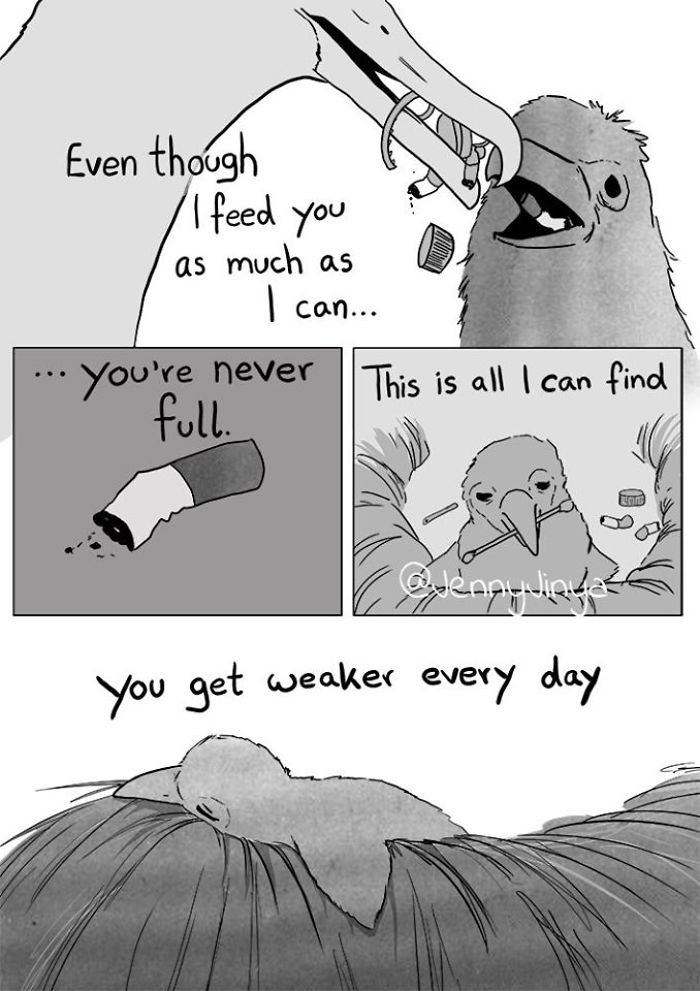 Jenny-Jinya
Jenny-JinyaThe birds mistake the plastic and rubbish for food and unknowingly swallow it or feed it to their chicks.
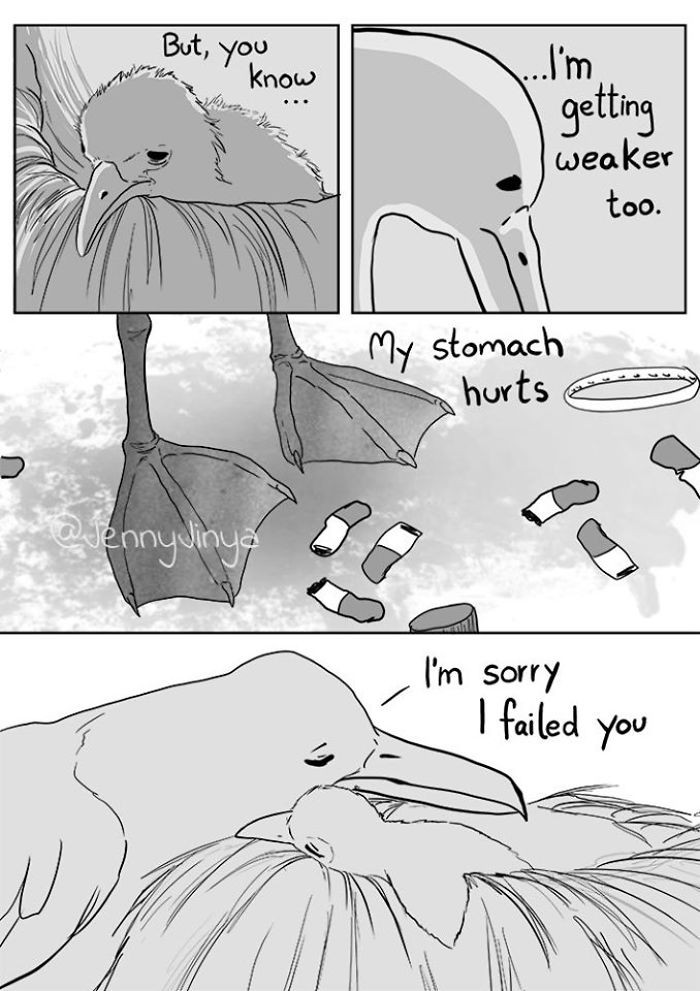 Jenny-Jinya
Jenny-JinyaMany birds die from ingesting so much indigestible waste that they end up with blockages. They can become unable to take in enough food that they starve to death, or worse.
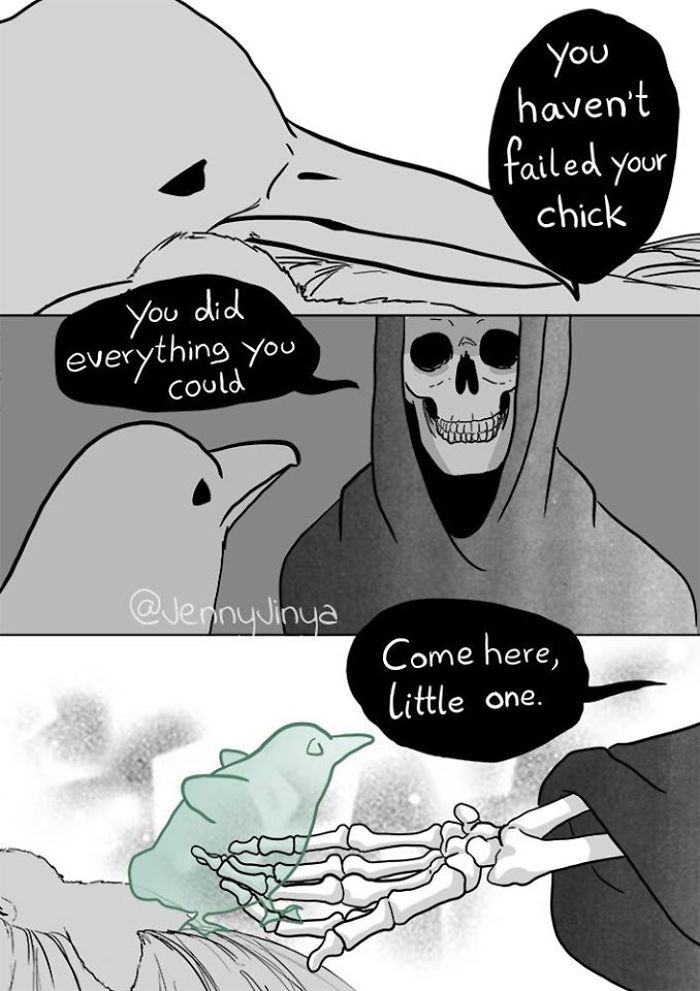 Jenny-Jinya
Jenny-JinyaAustralian researchers took blood from flesh-footed shearwaters in attempt to find out what is happening to them before they die.
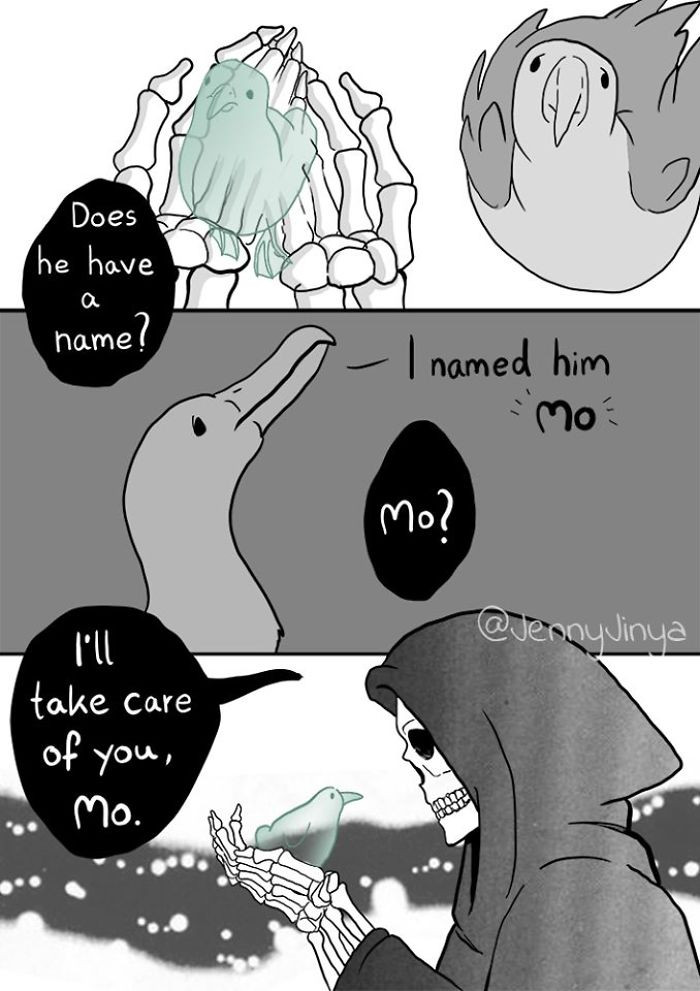 Jenny-Jinya
Jenny-JinyaThey discovered that, sadly, even birds with only a small amount of plastic in their system were dying as the plastic slowly leaks out poison into their bodies, causing serious damage.
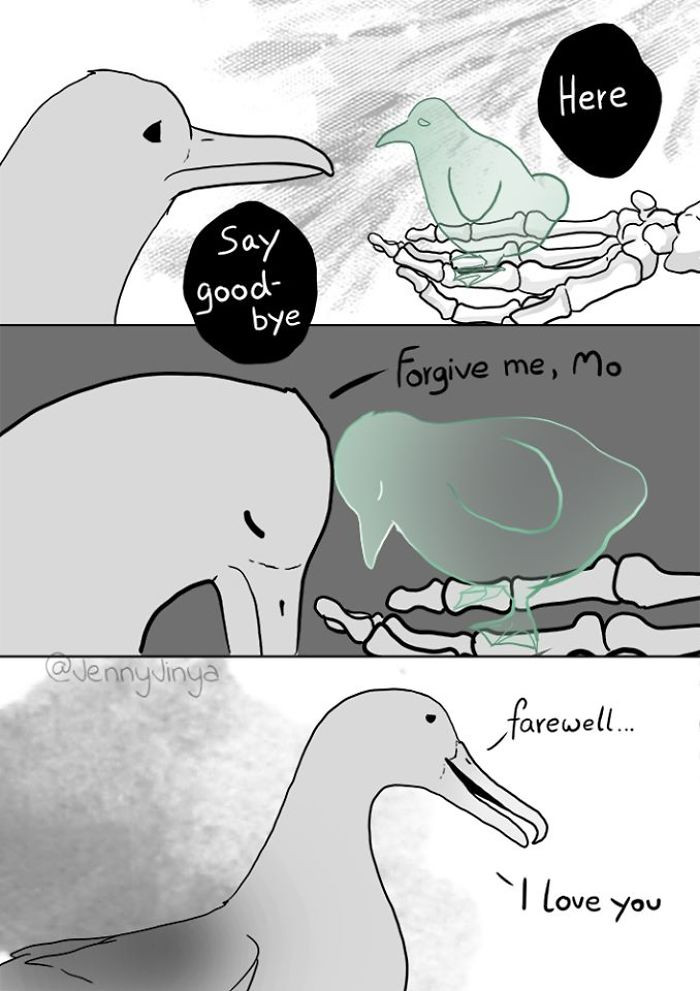 Jenny-Jinya
Jenny-JinyaThere have been great advances in recent years, with a 2,000-foot-long plastic-collecting device picking up the plastic in the Great Pacific Garbage Patch, and hundreds of plastic-collecting fixtures called Sea bins having been installed in harbors world-wide.
 Jenny-Jinya
Jenny-JinyaHowever, conservationists say that these advances are small and will be unable to make a dent in the amount of plastic in the ocean if we don't somehow put a stop to the waste entering the ocean in the first place.
In order to do that, the legislation of the use of single-use plastics, as well as raising awareness and educating people on how to reduce plastic use, will be the only way to make a true and lasting difference.
 Jenny-Jinya
Jenny-JinyaHere's what people have to say about it.












If you enjoyed this post, please remember to like, comment and share it with your friends and family!




